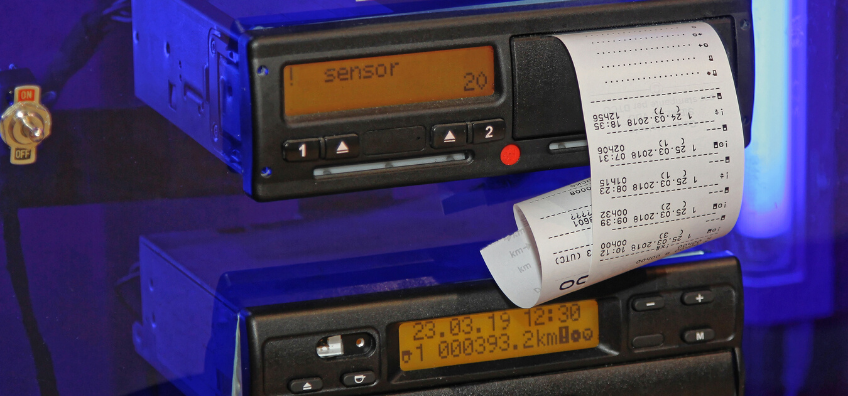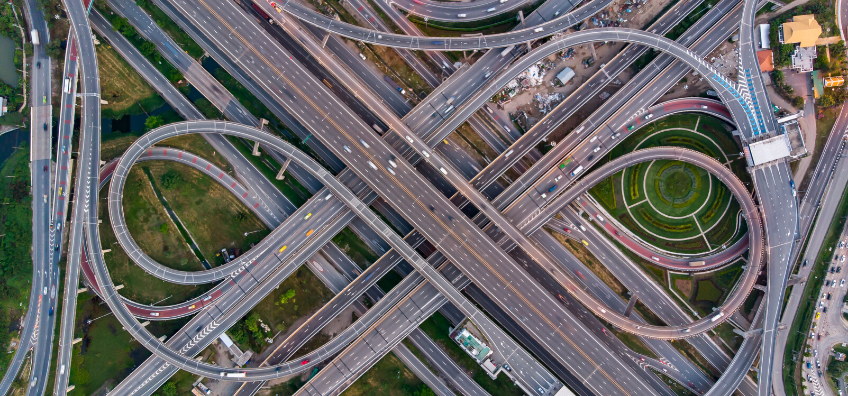What builds quality in road transport?
20/11/2019

Many carriers and forwarders, when answering a customer’s question “What is your quality?”, respond with “the best” and immediately add information about the new rolling stock, trained drivers, perhaps also forwarders and about the equipment of their vehicles. Some add information about service contracts, modern IT solutions, while risk-takers start guaranteeing timeliness and reliability ?
Depending on the characteristics of the customer, we deal with different types of KPI (Key Performance Indicators). Some of them are standard, define the basic obligations that should be fulfilled by the transport service provider. I mean, for example, timeliness, damage rate, documentation, price. Sometimes we also come across non-standard indicators, e.g. regarding ecology, including even the type of tires used.
Maintaining basic indicators at or above 80% is currently the standard. If someone is not able to reach this level, at best they will be a service provider of category C (A – the best). What if we reach a level above 90%? With each additional percentage, the amount of labor and capital begins to increase geometrically.
At some point we come up against a brick wall, in the end:
- you can’t be more punctual than “always on time”,
- you can’t have newer rolling stock than from the current year,
- you can’t lower the prices forever when everything is getting more expensive.
Of course, we can continue to work on better IT solutions providing our customers with new solutions such as live access to the location of the vehicle carrying out the order. The same applies to the optimization of processes within the company, which allow, e.g. through automation, to perform orders better, faster and also cheaper. These are undoubtedly areas that can be permanently improved as new technologies appear on the market.
Among these areas, there is the most important factor which is INFORMATION.
Possiamo organizzare qualsiasi
trasporto in 45 minuti
o meno
Il nostro dipendente preparerà rapidamente una proposta concreta, e dopo averla approvata, si assicurerà personalmente che nulla impedisca la consegna in tempo.
Gli ordini urgenti non ci sorprendono, perché siamo ben preparati.
Everyone who knows the transport and logistics industry at least a little bit knows very well how many situations have an impact on the results of our work. At the same time, they realize that we have no control over many of them. If we are talking about road transport, we can mention here:
- delays at loading/unloading,
- traffic,
- roadside inspections,
- staff shortages,
- breakdowns/accidents/damage to goods,
- weather (e.g. ferries canceled by storm).
Our customers are also aware of that (by no means more than it may seem to us) in the end they order transports and directly feel the effects of these situations.
Thanks to the efficient flow of information, it may turn out that we can have more control over some of these events and, most importantly, we can react to them quickly. I always tell freight forwarders and drivers that the only thing we have total control over is Information. In the era of telephones, the Internet and telematics, only a serious accident can prevent the transfer of information, e.g. about delay.
When we develop a stable flow of information in our team, it may turn out that by “messing up” transport, we will win. It sounds a bit like a cliché from a training advertisement of dubious quality, but please analyze the case study below. I want to emphasize that this “messing up” cannot occur regularly but definitely needs to be an incidental situation.
Situation:
Unloading: Monday 12:00
Next loading: Tuesday 07:45 FIX
Monday 11:00
The driver arrived for unloading about an hour ahead of time. On the spot, it turned out that he has to wait, because the warehouse has not yet finished loadings from the previous shift.
Monday 13:00
Still no one calls for unloading, the driver calls the forwarder to inform about the situation. The freight forwarder asks the driver to find out as much as possible why they are not unloading. He asks for information within 30 minutes (checkpoint).
Possiamo organizzare qualsiasi
trasporto in 45 minuti
o meno
Il nostro dipendente preparerà rapidamente una proposta concreta, e dopo averla approvata, si assicurerà personalmente che nulla impedisca la consegna in tempo.
Gli ordini urgenti non ci sorprendono, perché siamo ben preparati.
Monday 13:30
The driver calls. He managed to find out that there was a machine failure in the production at night and now they load and unload trucks not according to order but according to a key which he won’t know. So at the gate they call a specific truck (regardless of the time of arrival). He also reminds that he has working time until 19:00.
At the same time, the Freight forwarder sends information to the customer (loading Tuesday) with information that there is a risk of not loading at the appointed time and that he will return with information about the situation within an hour. At the same time, he undertakes steps to clarify this situation with the shipper (leading to quick unloading)
Monday 14:30
The driver still did not drive up to the ramp.
The Freight forwarder informs the customer that they have not unloaded the truck so far and worst of all, it is not known when it will happen. He asks to free the loading slot for another carrier. He will come back with information about the expected arrival time of the driver as soon as something “moves”.
It is a good idea to stop here and think a bit. The reader probably asks himself the question “What is he writing? Free a slot for a competitor?” There is a lot of truth in this reasoning. This “other carrier” may be our competitor with whom we fight in annual tenders for the price and other KPI. Nevertheless, it is worth changing the paradigm. Thanks to current information and proactive attitude, our customer is able to react. Adjust the loading cycle, take the delay into account, this request to free the slot gives him the opportunity to maneuver and to find a solution. At the same time, he receives a clear message from us that we are aware of our responsibility, the customer’s situation and we put his good first (and not just declare it). These are features that can only be attributed to professionals.
Someone might say “So what? Then they make a new tender and the cheaper one will win.” Unfortunately, it’s sad and likely. Nevertheless, it is worth remembering that the client, apart from conducting the tender, may also collect information on suppliers (quality of implementation, contact, problem solving, etc.) Often it is talked about how the cooperation with the carrier/forwarder looked like, and stories “they were late, but they made it” can help maintain position and price. On the other hand, it is also worth asking yourself whether a customer who has quality for nothing is worth our time? Isn’t it better to build a relationship with someone who requires and appreciates quality at the same time?
Monday 15:30
The driver drove up to the ramp, the expected unloading time: two hours. The Freight forwarder informs the customer about the estimated arrival time for loading on Tuesday at 09:00, the customer thanks for the information, however, cannot confirm any new slot.
Tuesday 12:00
The driver finishes loading.
Possiamo organizzare qualsiasi
trasporto in 45 minuti
o meno
Il nostro dipendente preparerà rapidamente una proposta concreta, e dopo averla approvata, si assicurerà personalmente che nulla impedisca la consegna in tempo.
Gli ordini urgenti non ci sorprendono, perché siamo ben preparati.
The situation described above happened several times during the implementation of the annual contract. Each time the customer was grateful for the quality and speed of information, and, what is more, contractual burden was never mentioned. Of course, as it happens in our industry, this is not a story with a happy ending – “they loaded happily ever after”.
After a year of praise for impeccable cooperation, it turned out that our offer for the next year did not pass. The competition gave definitely lower prices. During the talks, in recognition of the excellent cooperation, we were able to receive part of this contract, unfortunately in very limited quantities.
So, what is more important: information or rather the indicators?
Feel free to discuss in the comments.



